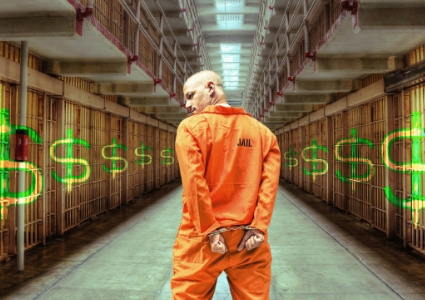Polling

Suggest an important issue not listed in this sub-category (). (Maximum 60 Characters)
Prison privatization

Our criminal justice system now detains about 2.3 million people in state, local, federal, juvenile and immigrant detention facilities, among others. Privately-run for-profit prisons were created in 1984. By 2017, this $4.8 billion/year industry was detaining 8.2%, or 121,420 of all US inmates. In 2013, private prison industry profits totaled about $630 million. The annual salaries of guards at private prisons is about $32,000 while our 800,000 federal prison guards average about $78,000. A 2016 Justice Dept. study found private prisons had a 28% higher rate of inmate-on-inmate assaults and more than twice as many inmate-on-staff assaults compared to federal prisons. Other studies in 2010 and 2011 found that it costs more to hold prisoners in private facilities than public ones.
Supporters claim privatized prisons are cheaper and more efficient than prisons operated by our government. They claim these jails can be built quickly, are equipped with the latest technology, are less crowded, and provide jobs for local communities.
Opponents believe that allowing the profit motive into the prison equation does not save money - it only encourages these companies to provide low-paying dangerous jobs and few, if any, economic benefits to local communities. Private prisons are expensive for inmates too, with families paying up to $24.95 for a 15-minute phone call and commissary vendors that bring in $1.6 billion a year. Critics say privatizing prisons has given these corporations and their unions an incentive to lobby against reducing prison populations, saying this industry is often the loudest voice for increased incarceration and longer prison terms.
In a recent executive order, President Biden has decided not to renew Justice Department contracts with private prisons, except for those facilities which detain undocumented immigrants. This action will end the use of private prisons when these contracts expire unless a future president rescinds Biden’s order, or until a law is passed making this change permanent.
Proposed Legislation: Reintroduction of H.R.994 - Justice is Not For Sale Act of 2021
Prospective Sponsor: Rep. Raul Grijalva (AZ)
Supporters claim privatized prisons are cheaper and more efficient than prisons operated by our government. They claim these jails can be built quickly, are equipped with the latest technology, are less crowded, and provide jobs for local communities.
Opponents believe that allowing the profit motive into the prison equation does not save money - it only encourages these companies to provide low-paying dangerous jobs and few, if any, economic benefits to local communities. Private prisons are expensive for inmates too, with families paying up to $24.95 for a 15-minute phone call and commissary vendors that bring in $1.6 billion a year. Critics say privatizing prisons has given these corporations and their unions an incentive to lobby against reducing prison populations, saying this industry is often the loudest voice for increased incarceration and longer prison terms.
In a recent executive order, President Biden has decided not to renew Justice Department contracts with private prisons, except for those facilities which detain undocumented immigrants. This action will end the use of private prisons when these contracts expire unless a future president rescinds Biden’s order, or until a law is passed making this change permanent.
Proposed Legislation: Reintroduction of H.R.994 - Justice is Not For Sale Act of 2021
Prospective Sponsor: Rep. Raul Grijalva (AZ)
Poll Opening Date
January 20, 2025
Poll Closing Date
January 26, 2025
Democracy Rules respects the privacy of your information.
See PRIVACY STATEMENT
See PRIVACY STATEMENT